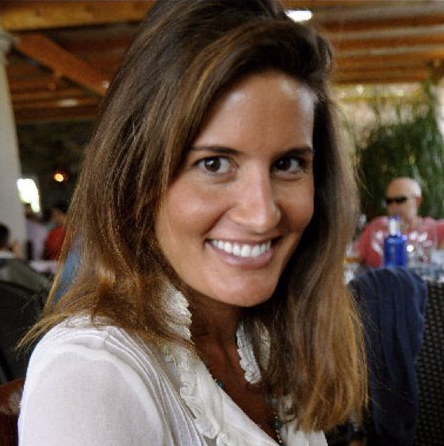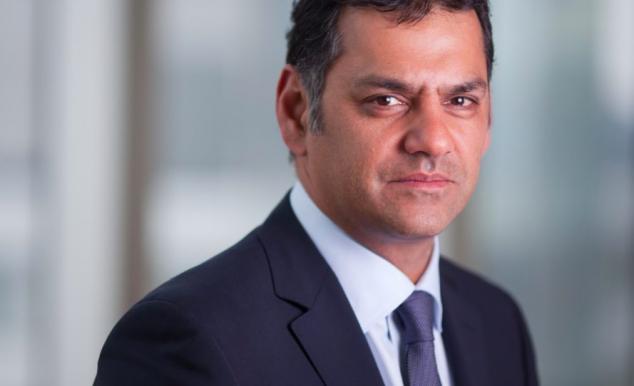“China’s Growth Might be Slower, Albeit of Higher Quality and More Sustainable in the Years Ahead”
| By Fórmate a Fondo | 0 Comentarios

Many consider China the main force behind the future of the global economy. Last year’s Third Plenary Session resulted in very important reforms which the government must implement to shift China from an export oriented economy to a domestic consumption country. This change may lead to slower growth in the future which is, in turn, one of the main issues for most economists regarding 2014. Winnie Chwang, Senior Analyst at Matthews Asia, answers Funds Society’s questions as a preview to her visit to Miami this week, in which she will discuss China as an investment opportunity with institutional and professional investors.
1. China’s growth is slowing – What is behind this lower growth?
China has sustained double-digit economic growth over the last two decades, driven by investments and exports. However, this pace is not likely to be sustainable going forward, and the government acknowledges a transition is taking place within the Chinese economy; where growth will increasingly be led by domestic consumption. It is widely accepted that this transition will translate to more moderated growth, albeit of higher quality, and more sustainable in the years ahead.
2. Where can we find the new sources of growth? What 3 main growth drivers would you highlight for the next 5 years?
At Matthews, we have been focused on the consumption story, which is one that continues to evolve with changing behavior amid rising income levels. The next decade should be no different, and we believe that increased domestic consumption will be a key theme for economic growth. In particular, we highlight consumer growth as the catalyst for a number of service-oriented industries. Three, in particular, are companies operating within tourism, information technology and health care; all of which are expanding on the back of increased consumer demand.
3. Which is, in your view, the most importanteconomic reform approved in the Third Plenary Session, whichtook place last November?
It would be difficult to pinpoint the most significant reform since there were numerous important initiatives that came out of the Third Plenary Session. However, the most important theme is clear—the government wants to continue to encourage a market economy and support the role of the private sector. This translates positively to a more efficient and market-driven economy, whichpromotes increased productivity and profitability for commercial enterprises in the long run.
4. Regarding valuation, where do you see the best pockets of value for the Chinese markets?
In the past two years, the consumer discretionary sector in China has seen meaningful corrections in light of an overall weaker macro economy as well as the initiation of the government’s anti-frugality campaign. As a result, valuations have trended down to a low double-digit level. However, our on-the-ground visits to China lead us to believe that underlying demand remains strong and once the macro sentiment turns, this will be a sector that stands to recover nicely.
One thing to point out here is that as with allour investments, we believe inthe value of bottom-up stock picking. We do not rely solely on valuations in our decision process. We continue to look for the best-run companies with solid business models that are positioned to excel over the long run.
5. What would be the main risk for an investor in Chinese equities?
The main risk for an investor in Chinese equities is policy risk. We tend to stay away from companies that are beholden to government policies, as they tend to change quickly. Instead, we focus on private companies that are able to operate successfully in a competitive market environment.
Certain industries, such as the banking sector, face impending scrutiny due to substantial quality concerns around off balance sheet exposure. We also remain concerned that future reforms for the financial services industry, such as interest rate deregulation, may not benefit these banks. As a result, we are generally cautious and underweight the banks in our portfolio as compared to the benchmark.
6. How important is corporate governance when investing in China?
As long-term investors, we consider corporate governance to be critical when assessing companies. Many of our investments span across three to five years—or longer. So it is important that we are confident that management demonstrates strong stewardship for our investments. Our process assesses the soundness of corporate structures as well as management’s governance ability over time. Our due diligence process emphasizes on-the-ground visits when examining potential investment ideas. We vet information we receive from managers with what we hear from their peers, customers, suppliers or other industry experts. Understanding the entire value chain helps us determine how much weight we can give to what managers tell us and what the true growth prospects are. Overall, we are encouraged to see corporate governance improving in China.














